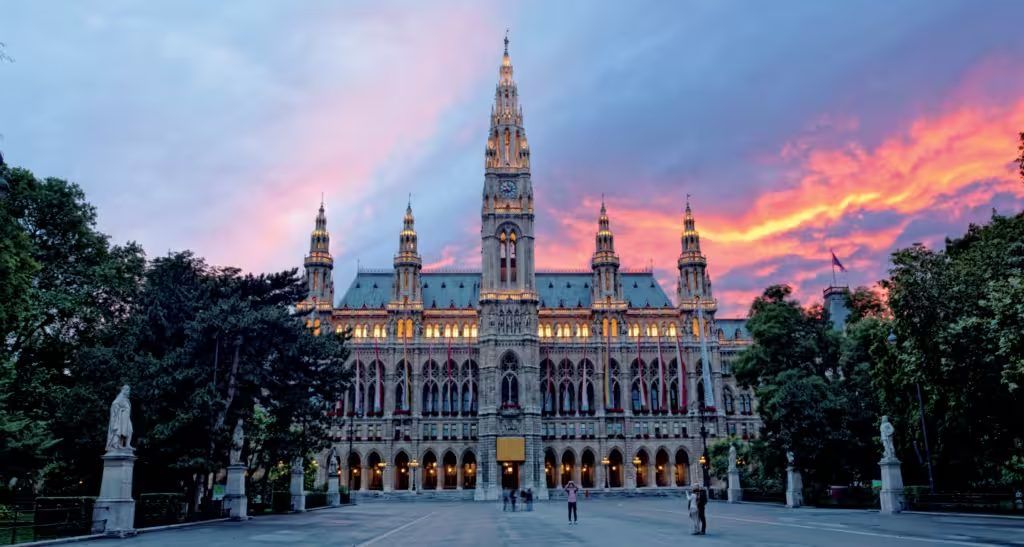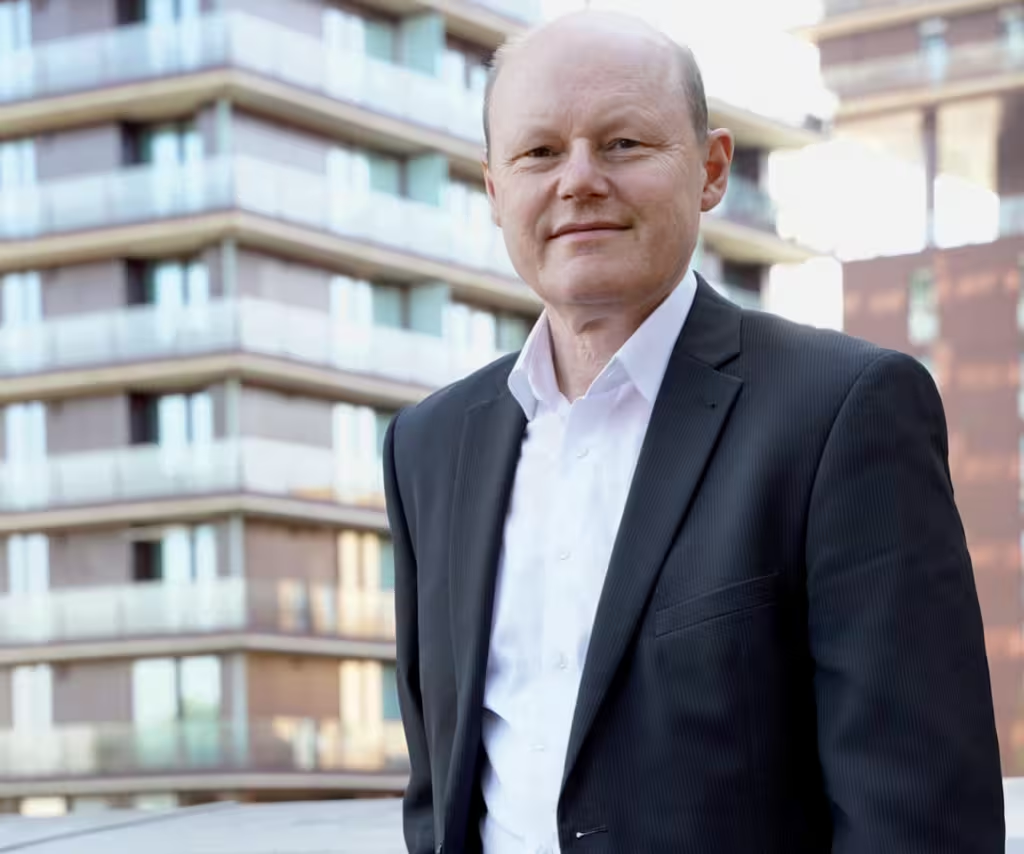How the city of Vienna uses countless scientific findings for concrete applications in the everyday lives of Viennese people.

© Panthermedia.net/Lenorlux
Since 2019, the Head of Science, Research and Business in the City of Vienna's Municipal Administration has served as an interface to colleges and universities. Research projects are initiated together with educational institutions and the city administration. In addition, there are event formats in which representatives of the city and researchers coordinate the concrete implementation and benefits for the Viennese on a wide variety of topics.

What does the City of Vienna’s cooperation with colleges and universities look like?
Franz Oberndorfer: We are interested in content-related cooperation. Either the city brings up topics with which we approach the universities, asking whether they can support us with a research topic, for example. It also works the other way round and universities approach us with research projects for which they are looking for partners. There are projects for which there is funding, such as from the WWTF (Vienna Science, Research and Technology Fund, ed.), which promotes basic research. The Vienna Business Agency, in turn, supports universities in cooperation with the business world. In addition, the Department of Culture (MA 7) has funding calls and science scholarships that support smaller projects. The Department of Economics, Labor and Statistics (MA 23) promotes universities of applied sciences and finances foundation professors. All of this is very important for the location.
Are these purely academic projects or is a practical relevance always required?
Oberndorfer: We are facing major challenges and issues that concern us greatly, such as climate change, demographic changes or digitalization, which are at the forefront. We are not conducting basic research; there must be a practical relevance.
What exactly are the main focuses?
Oberndorfer: Communication and information technology or the life sciences sector, in which the city of Vienna is very well positioned and which is being further promoted, for example through the expansion of the Medical University and the further development of precision medicine. An important topic is health in old age, and we also organize events on this topic. This does not necessarily have to be related to digitalization, but rather to how older people can be cared for at home for longer. There are innovations here from universities and technical colleges, which in turn are taken up by organizations in the city of Vienna and are trying to implement.
So we are talking more about networking?
Oberndorfer: It is definitely about networking and knowledge sharing, but the goal is not just the network. We also act as the first filter to determine whether there is a realistic chance of implementing projects. Only then do we organize events in different formats where we bring research and the city together. We also organize pure networking, but this is not necessarily about implementing projects, but rather about exchanging ideas. Our primary goal remains the implementation of concrete projects and the establishment of cooperation.
Can you give a concrete example of a project in which your department was involved from the idea to its implementation?
Oberndorfer: One of my favorite projects is gas detection. Small sensors are strung like a string and laid along a gas pipe. This makes it possible to detect a gas leak very precisely and at a very early stage. There was a research project on this at the University of Vienna, which resulted in a collaboration with the municipal utilities and is now being pursued further. The project is sensational in that it involves very small sensors that are installed in the pipes like little buttons on a string. This doesn't work without quantum physics.
Do you or the City of Vienna specify topics that research institutions should address, or do they proactively approach your department?
Oberndorfer: When it came to gas detectors, the university approached us, presented the development and was looking for partners. At one of our events, the Vienna public utility company showed great interest and that ultimately worked out. The impetus often comes from the city of Vienna when individual departments have a need for certain developments. Then we also bring research institutions together with the relevant people in the city. So it works both ways.
How can one imagine your events?
Oberndorfer: Often the meetings are in a smaller group, around 15 people. It consists of experts from universities and representatives of the city of Vienna.
What significance does science and research have for the city of Vienna in general?
Oberndorfer: These are very important and central building blocks, because knowledge is the most important resource we have. We have an economy based on knowledge, so prosperity also depends on science and research. Many questions that affect life and the city can be clarified when scientists and experts are involved. This cooperation is therefore very important to us. In Vienna we have
about the luxury and the opportunity to cooperate with a total of 26 universities. That is a very broad spectrum and there is hardly a subject area in which we do not have experts at university level. That makes our work really exciting. Incidentally, that also includes the music and art universities. There is a Christmas concert here every year, for example, which is broadcast to wards in hospitals and care facilities. Some students go directly to these facilities and bring music directly to the people. I personally enjoy that a lot too.
When it comes to AI, digitalization and IT in general, it is often said that we have the best minds, but there is a lack of financial support and opportunities. Should the city - or the state - invest more money here?
Oberndorfer: AI is certainly a key topic with huge implications, and its development is far from over. The City of Vienna supports the use of AI. The WWTF, for example, has launched a call to support research into AI and machine learning in the health sector at universities. In general, stakeholders would have to think about an AI strategy and fund it accordingly. Of course, more funding could be provided, because there can never be enough. But in times of rapid development of AI and digitalization, we must not forget other areas, such as the humanities and social sciences. They are at least as important for social cohesion and critical debate. This also applies to art and culture, because Vienna without art and culture is unimaginable. The balance must be maintained here.
Is it even possible to implement and use digitalization and AI on a broad and timely basis in a large city like Vienna? Or does this only work in the long term, with today's technologies potentially becoming obsolete the day after tomorrow?
Oberndorfer: It has to happen quickly, which is linked to the development of new technologies. However, projects in administration cannot be implemented overnight. There are calls for tenders, and it must be clarified how new technologies can be implemented in practice. This takes a certain amount of time. But it is not necessary to throw all plans overboard just to implement AI; developments are constantly being adapted. AI is already being used for imaging in the healthcare system, and there are already concrete projects here. Before AI can be used, however, all the necessary data must be available digitally in an appropriate quality. In general, the implementation of a project takes about two years. We are also in contact with other cities here, and Vienna is doing very well here.
How is the city of Vienna doing with regard to the shortage of skilled workers in IT jobs? What is the demand, can it be met and does the city of Vienna itself train skilled workers in this field?
Oberndorfer: This is a challenge for all organisations, including the City of Vienna. The City of Vienna has around 67,000 employees, around a third of whom will retire in the next eight years. This affects all areas, so there is a great need for new employees. The City of Vienna organizes job fairs for this purpose, and we are also trying to take measures in our small area. For example, there is a platform for final theses, where students have the opportunity to write their final theses on topics relevant to the city. City departments put topics on the platform, or students suggest topics that are then taken up by departments. In doing so, they deal with specific urban issues, and there is a possibility that a job offer will arise from this. We have also launched the 'Discover...' series, in which we try to get the population excited about science and research and show that the City of Vienna is a research-oriented city.
The city of Vienna supports training courses for kindergarten teachers and nursing staff, for example. Are there similar programs for AI and IT?
Oberndorfer: We are taking on academics, looking for AI experts and experts who have experience in data science, for example. The city itself offers IT training and special e-learning programs for employees in its own administrative academy. In the future, new job profiles will also be necessary in order to be able to deal with current issues as well as possible and implement projects. There are currently around 2,800 academics employed by the City of Vienna, almost a third of whom will retire in the next eight years. This is not just about AI and digitization, but also experts on the energy transition who deal with hydrogen and geothermal energy, for example. For this, we also need IT specialists and people with technical backgrounds in a wide variety of areas. The trick will be to find academics who have interdisciplinary expertise.
For a long time, civil service jobs in the City of Vienna had a boring image. Has that changed?
Oberndorfer: Definitely. At our events we are in contact with young academics who find the city very exciting because we are trying to implement the climate issue and are doing a lot in the health sector and providing essential services for the population. This is very well received by young people. The public sector's main task is to provide services that every resident needs, affordably and in the appropriate quality. That is a very broad spectrum and for that we need employees who are convinced of their job and enjoy it.